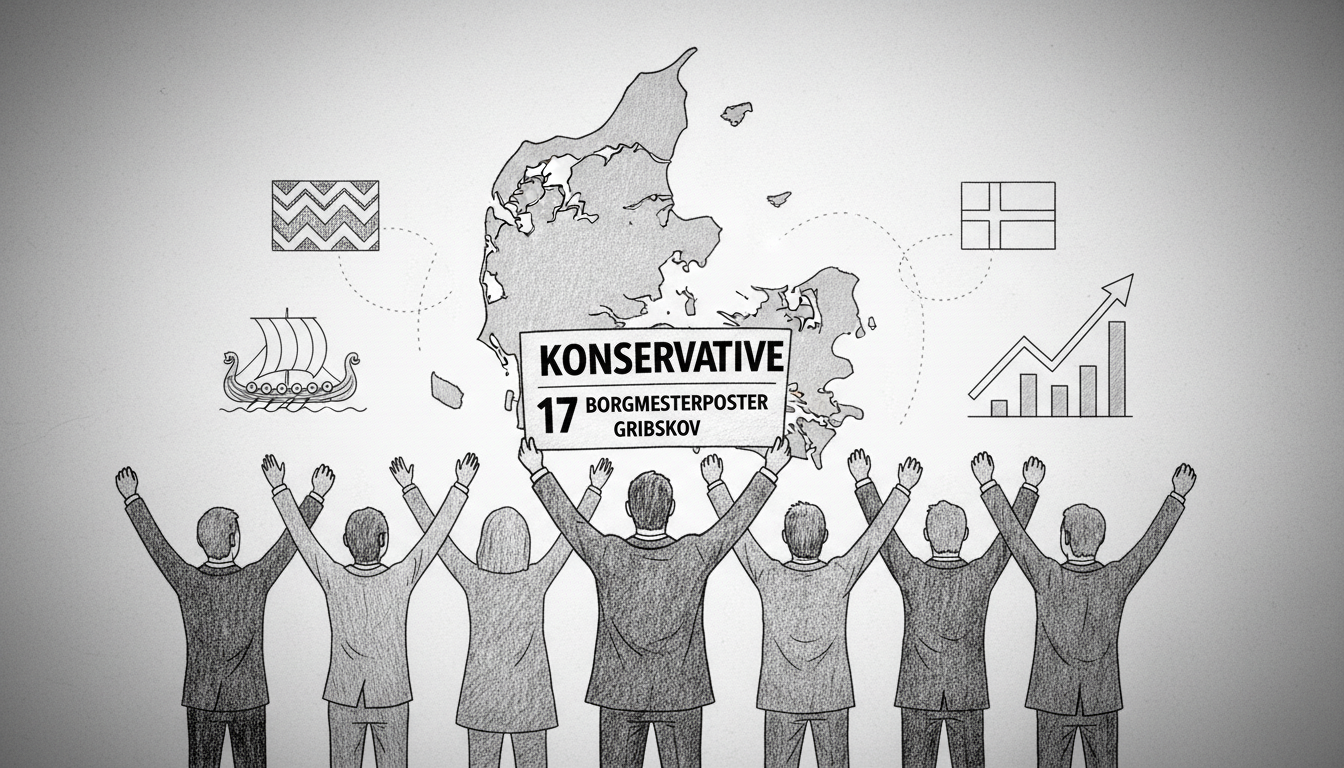The Conservative Party has secured another key municipality in Denmark's local government landscape. Trine Egetved from the Conservative Party becomes the new mayor of Gribskov Municipality. She confirmed the appointment in a public statement. This development brings the Conservative Party to 17 mayor positions across Denmark. The number represents a significant increase from their previous count of 14 mayors following the last municipal elections.
Egetved replaces Bent Hansen from the Liberal Party, who held the position since the previous administration. The new mayor expressed mixed emotions about her appointment. She described the situation as strange but also exciting. She plans to discuss the new responsibility with her family before fully embracing the role.
This municipal election has brought several new Conservative mayors to power across Denmark. Beyond Gribskov, the party gained control in Egedal, Hillerød, Kerteminde, Langeland, Læsø, Ringsted, and Samsø municipalities. In each case, Conservative candidates replaced mayors from other political parties. The party maintained its strongholds in North Zealand municipalities including Lyngby, Hørsholm, and Gentofte. Conservative mayors will continue leading these areas despite some political shifts.
Michael Ziegler from the Conservative Party secured reelection in Høje-Taastrup. He has served as mayor there for nearly two decades. However, the party lost its absolute majority in both Lyngby and Høje-Taastrup. These losses occurred despite maintaining leadership positions.
Conservative Party leader Mona Juul had set clear expectations before the elections. Her stated goal was maintaining the 14 mayor positions the party held after the previous municipal elections. The party not only achieved this target but exceeded it substantially. Juul expressed clear satisfaction with the election outcomes. She made her comments while monitoring election results and municipal negotiations from the Christiansborg parliamentary complex.
The Conservative Party's gains reflect broader political trends in Danish local governance. Municipal elections in Denmark occur every four years, with 98 municipalities participating. Mayors hold substantial power over local services including schools, elderly care, and urban planning. The Conservative expansion suggests shifting voter preferences in suburban and rural areas. Their success in taking municipalities from other parties indicates effective local campaigning strategies.
International observers should note that Danish municipal governments control approximately 70% of public sector employment. Mayor positions involve significant budgetary authority and policy implementation power. The Conservative gains could influence local service delivery and regional development priorities. These changes might affect everything from business development to environmental policies across multiple municipalities.
What do these political shifts mean for residents in affected municipalities? Changes in municipal leadership often bring adjustments to local priorities and spending patterns. New mayors typically review existing projects and policies during their initial months. The Conservative Party's expanded presence could signal stronger emphasis on business-friendly policies and fiscal conservatism at the local level. However, Danish coalition politics often require compromise even when parties gain mayor positions.
The increased Conservative representation comes amid ongoing debates about municipal reform in Denmark. Some political voices have called for merging smaller municipalities to improve efficiency. The party's expanded footprint could influence these discussions significantly. With more mayors at the table, the Conservatives gain additional voices in national local government associations and policy forums.
Danish local elections typically serve as important indicators between national parliamentary elections. The Conservative success suggests the party maintains strong grassroots organization and local appeal. This could have implications for their performance in future national elections. The results also demonstrate that Danish voters often differentiate between local and national political preferences.
For international readers understanding Nordic politics, Denmark's multi-level governance system allows significant local autonomy. Mayors wield substantial executive power compared to many other countries. The Conservative gains therefore represent meaningful political influence beyond symbolic victories. Each new mayor position translates to direct administrative control over municipal services affecting thousands of residents.

